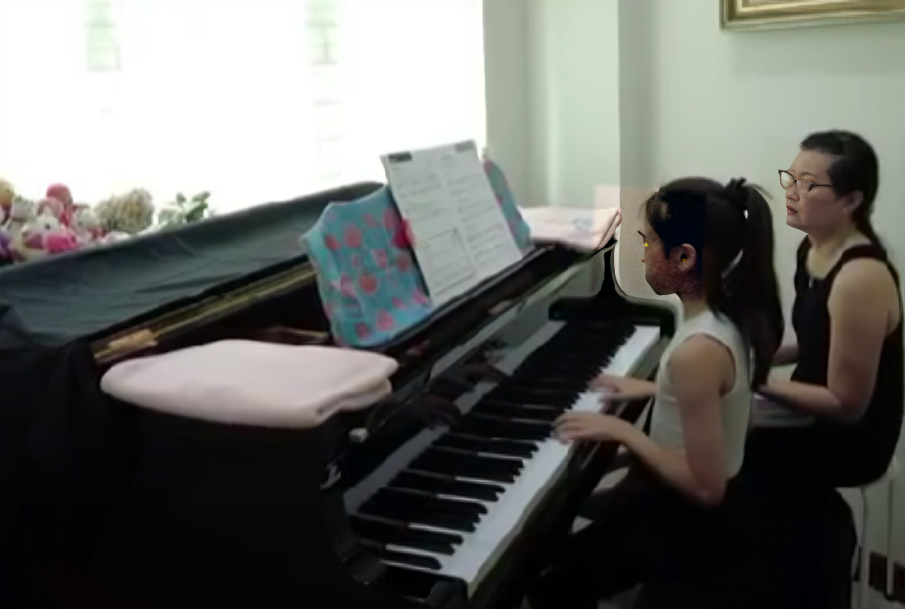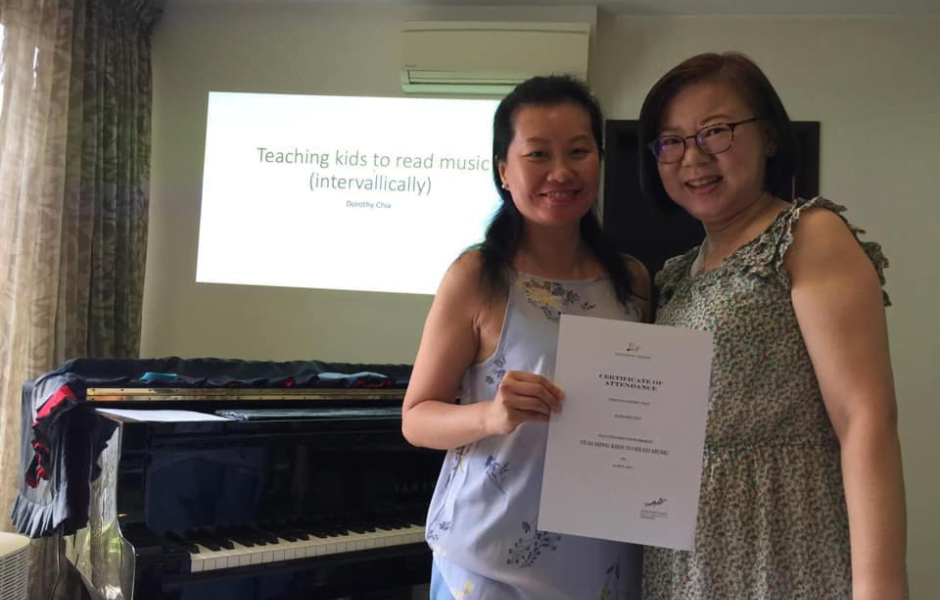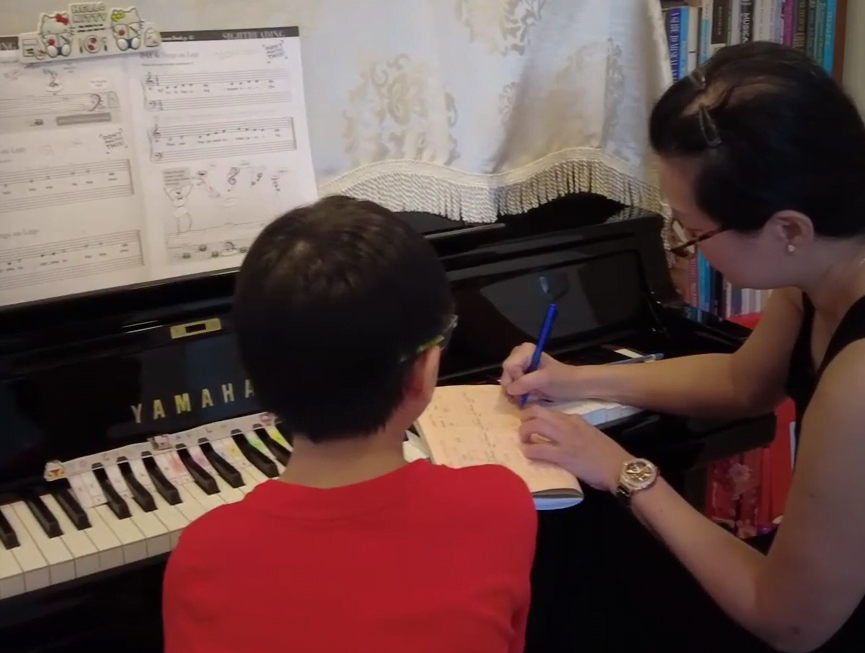When my daughter Emily first sat at the piano, her tiny fingers trembling on the keys, I realized that finding the right piano teacher singapore and the right piano lesson was more than just about learning music—it was about nurturing her confidence, creativity, and love for music. As a piano teacher myself, I’ve seen how the right guidance can light up a child’s world, transforming what might seem like a daunting task into a joyful, lifelong passion.
Choosing the right piano teacher for your child in Singapore isn’t just about finding someone who can teach them how to play notes; it’s about finding an experienced teacher who will inspire them, challenge them, and help them discover their unique musical voice.
Why Private Piano Lessons Are Ideal for Kids
Imagine this: your child, one-on-one with a dedicated teacher, every note played tailored to their pace, every lesson shaped around their interests. This is the magic of private piano lessons.
In my studio, I’ve seen how private lessons create a safe space for children to explore and grow. Unlike group lessons, where the pace is often dictated by the average progress of the class, private lessons offer the flexibility to focus on your child’s individual strengths and areas that need extra attention. Reputable piano lesson companies ensure high-quality instruction while accommodating the needs of students and parents. Whether they’re a fast learner ready to tackle Beethoven or a beginner who needs to take things slow, private lessons adapt to your child’s unique rhythm. Lesson fees are typically paid directly to the teacher, ensuring transparency and no hidden charges.
I once had a student, Brena, who was incredibly shy. In a group setting, she barely touched the keys. But in our private lessons, she began to open up, finding comfort in the personalized attention. Over time, she not only mastered complex pieces but also gained confidence in other areas of her life. The transformation was profound and deeply rewarding—for both of us.
Key Qualities of an Excellent Piano Teacher
So, what makes a good teacher truly exceptional? It’s more than just a deep knowledge of music. Finding qualified teachers through reputable piano lesson companies ensures high-quality instruction and caters to the needs of students and parents. As a parent, you’ll want to look for someone who possesses a blend of experience, teaching style, patience, and an ability to connect with children on an emotional level.
Experience is crucial, of course. A seasoned teacher has likely encountered a wide range of learning styles and can adapt their methods to suit your child. But beyond experience, look for someone who teaches with empathy and enthusiasm—someone who can make lessons engaging, even when the material is challenging.
A passionate piano teacher can inspire students through their dedication and meticulous approach, fostering a genuine interest in music and a strong connection with their students.
One of my proudest moments as a teacher was helping a young boy named Alex, who struggled with self-discipline. By turning our lessons into a game and celebrating small victories, I was able to keep him motivated and focused. Eventually, he not only improved his piano skills but also learned the value of perseverance—something his parents later told me translated into his schoolwork as well.

Recommended Piano Teacher in Singapore
If you’re looking for a highly recommended piano teacher in Singapore, look no further than Adeline Yeo Piano Studio. Adeline has achieved at least a Grade 8 level in practical exams from recognized institutions like the Royal School of Music (ABRSM). Known for her personalized approach and deep commitment to nurturing young talent, Adeline has helped countless students find their musical voice and excel in their piano studies.
Her studio offers accessible and convenient piano lessons tailored to each child’s unique abilities, providing a warm, encouraging environment where their talents are recognized and developed. To get a glimpse of her teaching style and the progress her students have made, be sure to check out the Adeline Yeo Piano Studio YouTube channel, where you’ll find inspiring performances and other videos.
For the latest updates, student achievements, and more, follow her on Facebook. Connect with Adeline Yeo Piano Studio today, and give your child the gift of music guided by one of Singapore’s top piano educators.
How to Choose the Right Piano Teacher
Choosing the right piano teacher can feel overwhelming, but it doesn’t have to be. Start by considering your child’s personality and learning style. Are they self-motivated, or do they need a bit more encouragement? Do they thrive on structure, or do they prefer a more relaxed approach? These insights can guide you toward a teacher whose methods will resonate with your child. Additionally, consider the option of hiring a home piano teacher, which offers flexibility in learning arrangements.
Finding qualified teachers through reputable piano lesson companies ensures high-quality instruction and caters to the needs of both students and parents. Don’t forget to attend trial lessons. This gives you a chance to observe how the teacher interacts with your child. Do they explain concepts clearly? Are they patient and encouraging? How does your child respond to them? These are all important factors to consider. Moreover, there is a free service available for finding piano teachers, ensuring there are no hidden charges or service fees.
And of course, read reviews. Other parents’ experiences can offer valuable insights into what you can expect. Look for feedback that mentions the teacher’s ability to connect with children, their patience, and their effectiveness in improving students’ skills.

Testimonials from Happy Parents and Students
Over the years, I’ve been blessed to work with many wonderful families and piano students. Personalized piano lessons have helped students improve their skills and gain confidence. One parent, Mrs. Ong, recently shared, “My son struggled with focus, but under Ms. Adeline’s guidance, he has not only become a better pianist but also a more disciplined student. The personalized attention in the lessons made all the difference.”
Another student, 10-year-old Ethan, said, “I used to think piano was boring, but now it’s my favorite thing to do! Ms. Adeline makes every lesson fun, and I’ve even started composing my own songs.”
These stories are why I love what I do. They remind me that teaching piano is about much more than music—it’s about helping children discover their potential and learn life skills that go far beyond the keyboard.
Conclusion and Call to Action
If you’re searching for a piano teacher in Singapore, I encourage you to take the time to find someone who truly connects with your child. The right teacher can make all the difference, turning piano lessons into a journey of self-discovery, confidence, and joy.
Regular piano lessons are crucial in achieving consistent progress and skill development in music.
Whether your child dreams of playing at Carnegie Hall or simply enjoys the beauty of music, the right teacher will guide them every step of the way.
Ready to embark on this musical journey? Contact us today to schedule a trial lesson and see how private piano lessons can inspire your child to reach new potential on the musical journey.




